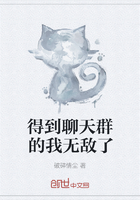We entered the hall by a back door, and in a little waiting-room Iwas introduced to some of the speakers. They were a scratch lot as seen in that dingy place. The chairman was a shop-steward in one of the Societies, a fierce little rat of a man, who spoke with a cockney accent and addressed me as 'Comrade'. But one of them roused my liveliest interest. I heard the name of Gresson, and turned to find a fellow of about thirty-five, rather sprucely dressed, with a flower in his buttonhole. 'Mr Brand,' he said, in a rich American voice which recalled Blenkiron's. 'Very pleased to meet you, sir. We have Come from remote parts of the globe to be present at this gathering.' I noticed that he had reddish hair, and small bright eyes, and a nose with a droop like a Polish jew's.
As soon as we reached the platform I saw that there was going to be trouble. The hall was packed to the door, and in all the front half there was the kind of audience I expected to see - working-men of the political type who before the war would have thronged to party meetings. But not all the crowd at the back had come to listen. Some were scallawags, some looked like better-class clerks out for a spree, and there was a fair quantity of khaki. There were also one or two gentlemen not strictly sober.
The chairman began by putting his foot in it. He said we were there tonight to protest against the continuation of the war and to form a branch of the new British Council of Workmen and Soldiers.
He told them with a fine mixture of metaphors that we had got to take the reins into our own hands, for the men who were running the war had their own axes to grind and were marching to oligarchy through the blood of the workers. He added that we had no quarrel with Germany half as bad as we had with our own capitalists. He looked forward to the day when British soldiers would leap from their trenches and extend the hand of friendship to their German comrades.
'No me!' said a solemn voice. 'I'm not seekin' a bullet in my wame,' - at which there was laughter and cat-calls.
Tombs followed and made a worse hash of it. He was determined to speak, as he would have put it, to democracy in its own language, so he said 'hell' several times, loudly but without conviction.
Presently he slipped into the manner of the lecturer, and the audience grew restless. 'I propose to ask myself a question -' he began, and from the back of the hall came - 'And a damned sully answer ye'll get.' After that there was no more Tombs.
I followed with extreme nervousness, and to my surprise got a fair hearing. I felt as mean as a mangy dog on a cold morning, for Ihated to talk rot before soldiers - especially before a couple of Royal Scots Fusiliers, who, for all I knew, might have been in my own brigade. My line was the plain, practical, patriotic man, just come from the colonies, who looked at things with fresh eyes, and called for a new deal. I was very moderate, but to justify my appearance there I had to put in a wild patch or two, and I got these by impassioned attacks on the Ministry of Munitions. I mixed up a little mild praise of the Germans, whom I said I had known all over the world for decent fellows. I received little applause, but no marked dissent, and sat down with deep thankfulness.
The next speaker put the lid on it. I believe he was a noted agitator, who had already been deported. Towards him there was no lukewarmness, for one half of the audience cheered wildly when he rose, and the other half hissed and groaned. He began with whirlwind abuse of the idle rich, then of the middle-classes (he called them the 'rich man's flunkeys'), and finally of the Government.
All that was fairly well received, for it is the fashion of the Briton to run down every Government and yet to be very averse to parting from it. Then he started on the soldiers and slanged the officers ('gentry pups' was his name for them), and the generals, whom he accused of idleness, of cowardice, and of habitual intoxication.
He told us that our own kith and kin were sacrificed in every battle by leaders who had not the guts to share their risks. The Scots Fusiliers looked perturbed, as if they were in doubt of his meaning. Then he put it more plainly. 'Will any soldier deny that the men are the barrage to keep the officers' skins whole?'
'That's a bloody lee,' said one of the Fusilier jocks.
The man took no notice of the interruption, being carried away by the torrent of his own rhetoric, but he had not allowed for the persistence of the interrupter. The jock got slowly to his feet, and announced that he wanted satisfaction. 'If ye open your dirty gab to blagyird honest men, I'll come up on the platform and wring your neck.'
At that there was a fine old row, some crying out 'Order', some 'Fair play', and some applauding. A Canadian at the back of the hall started a song, and there was an ugly press forward.
The hall seemed to be moving up from the back, and already men were standing in all the passages and right to the edge of the platform. I did not like the look in the eyes of these new-comers, and among the crowd I saw several who were obviously plain-clothes policemen.















